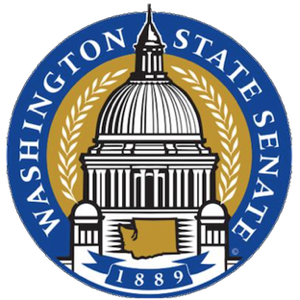The Washington State Senate Labor and Commerce Committee (WA Senate LC) considers issues relating to labor issues, including unemployment insurance, industrial insurance/workers’ compensation, prevailing wage, collective bargaining, worker rights and benefits, and the Washington Cares Act. The committee also considers commerce issues, including the regulation of certain professions and businesses, and alcohol, tobacco, and cannabis.
Executive Session
- SB 5367 - “Concerning the regulation of products containing THC.”
- SB 5340 - “Regarding limits on the sale and possession of retail cannabis products.”
- SB 5363 - “Concerning cannabis retailer advertising.”
- SB 5259 - “Ensuring commerce and workplaces are safe from product theft.”
